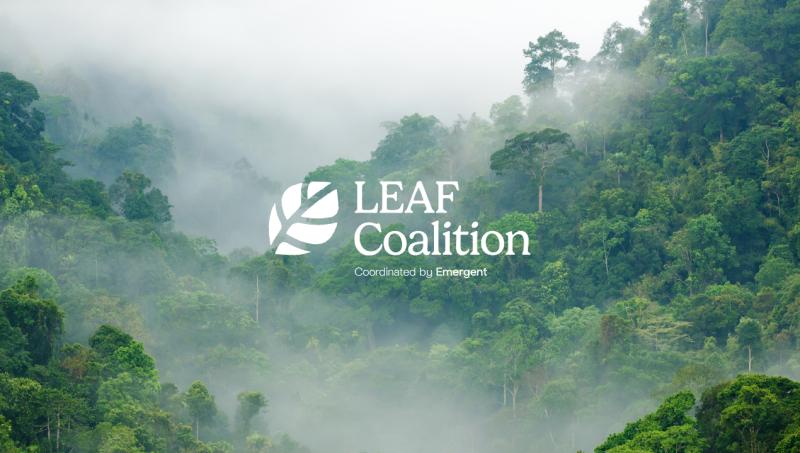Amazon has taken a significant step toward forest preservation by joining a $180 million carbon credits deal aimed at protecting the Brazilian rainforest. This initiative, led by the LEAF Coalition, a forest conservation partnership between governments and corporations, represents a strategic move for Amazon and its fellow collaborators in the fight against climate change. With growing attention on carbon credit markets, especially those focused on nature-based solutions, this deal could reshape the landscape of forest conservation and corporate climate responsibility.
The LEAF Coalition and Its Amazonian Focus
Founded in 2021 with backing from major entities such as the U.S. and U.K. governments, the LEAF (Lowering Emissions by Accelerating Forest finance) Coalition has set its sights on one of the world’s most critical carbon sinks: the Amazon rainforest. The Amazon plays an essential role in global climate regulation by absorbing vast amounts of carbon dioxide. Yet, despite its importance, the forest has been under increasing threat from deforestation, driven by agriculture, illegal logging, and mining.
The $180 million deal, announced by Helder Barbalho, Governor of the northern Brazilian state of Pará, during New York Climate Week, marks LEAF’s first carbon credit agreement specifically focused on the Amazon. Pará, the state where much of the forest destruction has occurred, is the frontline of Brazil’s efforts to curb deforestation. The funds from this agreement will be funneled directly into forest conservation efforts, benefiting local communities, including indigenous groups, traditional extractivist populations, and small family farms.
This deal is more than a mere financial transaction; it sends a powerful message about the global importance of preserving tropical forests. Amazon, the tech giant, making its first purchase of carbon credits in this region, reinforces the narrative that protecting biodiversity-rich areas like the Amazon is pivotal to mitigating climate change. The partnership of other corporations, such as Bayer, Capgemini, BCG, H&M, and Walmart Foundation, further highlights a growing alignment between business interests and environmental stewardship.

Corporate Investment in Nature-Based Solutions
The carbon credits purchased by Amazon and its partners come at a premium price—$15 per credit, significantly higher than the average market price for nature-based offsets. Each carbon credit represents a reduction of one metric ton of carbon emissions, achieved through deforestation reduction efforts in Pará between 2023 and 2026. This premium pricing reflects the growing recognition of the value of nature-based solutions (NbS) in tackling climate change.
In recent years, the global demand for carbon credits has faced challenges, particularly with concerns over the credibility of some projects. Despite this, large tech firms like Microsoft, Meta, and Google have continued to invest heavily in nature-based credits in Brazil. Amazon’s participation in this particular deal marks a strategic alignment with other major corporations that see value not just in offsetting emissions, but in supporting sustainable projects that offer co-benefits, including biodiversity preservation and the empowerment of local communities.
The involvement of companies like Amazon in high-profile deals such as this underscores the increasing corporate recognition of the link between business sustainability and environmental health. By aligning with the LEAF Coalition, these firms are also investing in the credibility and effectiveness of forest conservation initiatives, which are essential for carbon offset markets to maintain integrity and impact.
Protecting Local Communities and Biodiversity
A key aspect of this initiative is its focus on social equity. The $180 million deal will not only address deforestation but will also channel funds toward indigenous communities, former slave communities (known as Quilombolas), traditional extractivist populations, and family farms in Pará. These groups are integral to forest conservation efforts and have long acted as stewards of the land.
By investing in these communities, the LEAF Coalition is fostering an inclusive approach to environmental sustainability. Forest-dependent communities are often the most vulnerable to deforestation and climate change impacts. However, with access to financial resources and support, they can enhance their role as protectors of biodiversity and key actors in carbon sequestration. For example, indigenous tribes have a long history of managing the forest sustainably, making their inclusion critical to the success of long-term conservation strategies.
With Pará set to host the UN COP30 climate summit in 2025, this initiative further highlights Brazil’s efforts to reclaim its environmental leadership after years of severe deforestation under previous governments. The country’s renewed focus on the Amazon, coupled with international investments like this carbon credit deal, represents a significant shift in policy and priorities for the region.
The Role of Carbon Markets in Climate Tech Development
Carbon credits have become an increasingly important part of climate tech solutions, serving as a financial mechanism to incentivize emissions reduction. In the case of the Amazon, the development of carbon credit projects tied to reforestation and deforestation prevention is crucial for maintaining the ecological services the forest provides, such as carbon absorption, temperature regulation, and water cycle maintenance.
By investing in these credits, companies are betting on the maturation of carbon markets as a key tool in global decarbonization efforts. While carbon credits alone will not solve the climate crisis, they play a critical role in transitioning to a low-carbon economy, particularly when combined with direct emissions reductions and innovations in renewable energy and energy efficiency technologies.
The $180 million LEAF Coalition deal serves as a blueprint for how climate tech companies and corporations can leverage carbon markets to support high-impact environmental projects. This model encourages greater corporate accountability while funding tangible solutions to forest degradation, which, in turn, bolsters broader climate action.
Climate Insider Analysis: A Strategic Turning Point in Corporate Climate Action
This deal represents more than just a financial commitment from Amazon and its partners—it signals a critical shift in how corporations view their role in mitigating climate change. By engaging in high-value carbon credit purchases aimed at preserving the Amazon rainforest, these companies are setting a precedent for investing in nature-based solutions that extend beyond simple carbon offsets.
The involvement of multiple corporations, the focus on socially inclusive conservation efforts, and the strategic timing ahead of COP30 all point to a new era of corporate responsibility in addressing deforestation and biodiversity loss. With the carbon market showing signs of evolution, this deal serves as a reminder that strategic, nature-based solutions will play an increasingly important role in the climate tech landscape.
As governments, corporations, and local communities unite under initiatives like LEAF, we are witnessing the formation of a new paradigm in global environmental governance. The Amazon rainforest, long regarded as a key battleground in the fight against climate change, is now becoming a testing ground for innovative partnerships between the private sector and local stakeholders.
Featured Image: Credit: LEAF Coalition








